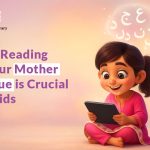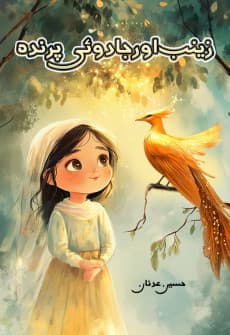
Language is a piece of identity, not just meanings and sounds. For little readers, reading in their mother tongue is more than just turning pages, it’s about heritage, home, and voice. It’s about giving kids wings of confidence, celebrating culture, and binding them with values that never wither. In a world where English shines on the global scene, yet it is the true power of mother tongue that grounds young feet before their wings carry them into the universe of possibilities.
Mother Tongue: The Whisper of Culture, The Language of the Soul
Each time a child steps into stories in their mother tongue, entire worlds of magic, heritage, and belonging swings open before them:
● Echoes of home – every page lets kids hear the echo of the same fables, rituals, and melodies that naturally flows through their bloodline.
● Learning without barriers – children absorb ideas like second nature when they come wrapped in their mother language they already carry inside.
● Mother tongue is like a springboard – solid fluency in the first language lets children climb into new linguistic worlds with ease.
● Cultural pride – stories in their mother tongue grounds kids in their roots with confidence.
The Secret Ingredient for Tomorrow’s Thinkers
Why the voice of heritage shape the stories of lifetime:
● Brain and language in sync – research indicates that a kid’s mind thrives best when nourished by their mother tongue.
● The cornerstone of academic success – with strong roots in the first language, wisdom to branch, blossom, and bloom in every discipline fans out like ripples across a pond
● Sharper minds – in their mother tongue, thoughts align and kids untangle concepts with insight and clarity
● Heartstrings of language – family tales in their mother tongue turns into keepsakes of memory, passing warm, uniting, and lasting bonds from one generation to the next.
Culture, Language & Values: Lessons Kids Inherit
Reading in one’s own mother tongue goes beyond literacy, it’s like drinking from a well of values, not just a pool of words:
● Cultural heartbeat: folk narratives carry echoes of humanity, respect, and resilience.
● Keeping the past alive: kids dive into the colors of festivals, rituals, leading young hearts with ancestral light.
● Whispers of virtue: stories carry gentle lessons that light the path of honesty, courage, and kindness.
● Tongue of treasures: children hold the banner of their mother tongue with pride, rather than as a whisper of shame.
Daily Wonders That Shape Tomorrow
Make every day a homecoming by weaving your mother tongue reading into the fabric of everyday life:
● Words with wings – young voices master the art of expressing the pulse of their feelings and the visions of their dreams.
● Imagination as catalyst – magical tales filled with wonder nudges young thinkers toward original thinking and fresh ideas.
● Richer word bank – native words root themselves like lifelong companions, guiding children to express their heart with beauty.
● Tales over technology – stories in one’s mother tongue spin ordinary evenings into timeless magic.
How Parents Can Spark the Flame of Mother Tongue Reading
Whimsical, thoughtful ways to shape childhood learning:
● Family story hour – light up evenings with poems, fairytales, and fables carried in the voice of your mother tongue.
● Laughing your way into learning – let riddles, tunes, and rhymes flow in the mother tongue.
● The gift of two worlds – teach children that bilingualism is a crown of strength.
Message to Remember: Solid Beginnings, Promising Future
Reading in your mother tongue goes beyond literacy, it nurtures cultural roots and stretches the wings of wonder. Roots planted in culture, language and values and wings that carry them into new worlds.
There’s no better time than today, so why wait? Pick up a storybook in your mother tongue, and witness your child’s world bloom with joy, belonging, and identity.
FAQs on Mother Tongue Reading
1. Why is reading in their mother tongue crucial for kids?
It allows ideas to click faster, blossom confidence, and grounds young souls to the living pulse of their culture.
2. Does reading mainly in the mother tongue restrict my child from thriving in other languages?
Not in the least! A firm grasp on the mother tongue makes it quicker for the child to pick up other languages.
3. What’s the ideal age for kids to start reading in their mother tongue?
The sooner, the better. Start with familiar rhymes, bedtime tales, and picture filled books in their mother tongue to plant the strongest seeds.
4. Can schools make mother tongue reading a part of classroom practice?
Certainly. When education begins in the mother tongue, students develop confidence and achieve higher success as they progress.
5. How can I encourage my child to explore stories and books in the mother tongue?
Make reading an adventure, pick vibrant storybooks, narrate them aloud, and connect their messages to daily experiences.




